Plant Sciences Institute Faculty Scholars
(Scholars sorted by last name in alphabetical ascending order)
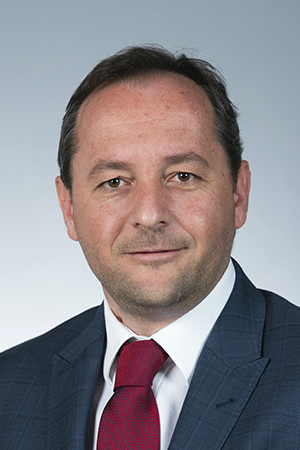 Second Cohort48H-Index8,000+Citations(Google Scholar)
Second Cohort48H-Index8,000+Citations(Google Scholar)Sotirios Archontoulis, Ph.D.
Professor in the Department of AgronomyLab Website | Plant Sciences Related Grant Awards | Plant Sciences Related Publications | Google ScholarSotirios Archontoulis' research interests include cropping systems analysis, crop simulation modeling and digital agriculture. His research program focuses on deeper understanding Genotype x Environment x Management interactions, adding mechanistic algorithms into crop models to better simulate soil-plant-atmosphere processes and expression of genotypes in the field, and on developing web-tools to disseminate research results in real-time to stakeholders. Archontoulis' research group uses field experimentation and computer simulation modeling to predict impacts (e.g., yield forecasting, the FACTS project), explain causes and design strategies to improve production and environmental performance of U.S. Midwestern cropping systems under current and future climate.
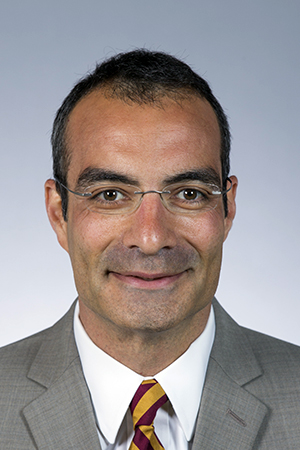 Second Cohort43H-Index5,800+Citations(Google Scholar)
Second Cohort43H-Index5,800+Citations(Google Scholar)Michael Castellano, Ph.D.
Professor in the Department of AgronomyWilliam T. Frankenberger Professor of Soil ScienceLab Website | Plant Sciences Related Grant Awards | Plant Sciences Related Publications | Google ScholarMichael Castellano's research advances our basic understanding of nutrient dynamics across the plant-soil-atmosphere continuum to improve the productivity and environmental performance of cropping systems.
Dr. Castellano's PSI project addresses the roles of environment and management on phenotype. Soil properties and management interact to have large effects on resource availability within and across fields. His research group uses experiments, innovative sensing technologies and process-based modeling to observe, predict and explain 1) how variation in resource availability affects phenotype; and 2) what phenotypes perform best in particular combinations of environment and management.
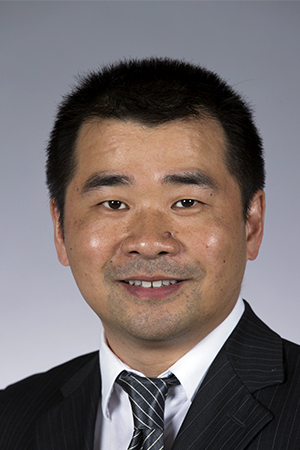 First Cohort35H-Index4,900+Citations(Google Scholar)
First Cohort35H-Index4,900+Citations(Google Scholar)Liang Dong, Ph.D.
Professor in the Department of Electrical and Computer EngineeringNorthrop Grumman ProfessorVikram L. Dalal Professorship in Electrical and Computer EngineeringLab Website | Plant Sciences Related Grant Awards | Plant Sciences Related Publications | Google ScholarLiang Dong's research interests include Micro/Nano-Electro-Mechanical Systems (MEMS/NEMS), lab on a chip, microfluidics, optics and smart materials and structures and their applications in sustainable agriculture; biomedicine, renewable energy; and information technology. As an engineer in the area of Micro-Electro-Mechanical Systems, Dr. Dong develops small-scale devices with critical dimensions ranging from micrometers to millimeters through inexpensive fabrication processes. He also integrates these devices into sensor networks for large-scale, high-throughput, in-field measurements.
Dr. Dong's PSI project focuses on developing and deploying inexpensive microscale sensors and biochips for direct measurement of important chemical and physical signals related to plant responses to various environmental stresses.
 Third Cohort11H-Index400+Citations(Google Scholar)
Third Cohort11H-Index400+Citations(Google Scholar)Somak Dutta, Ph.D.
Associate Professor in the Department of StatisticsLab Website | Plant Sciences Related Grant Awards | Plant Sciences Related Publications | Google ScholarSomak Dutta's research interests include spatial analysis, machine learning, high-dimensional methods for biological data and predictive plant phenomics. He has been working on developing methods and fast matrix-free computations for big data that arise from field trials, gene sequencing, and high-throughput plant phenotyping.
Modern advances in technology have facilitated the rapid and cost effective collection of data from agricultural experiments. These data include both phenotypic measurements on plants and their genotypic information as well as meteorological and other environmental variables. Often these data are high-dimensional and have complex dependent structures and possess substantial challenges for statistical analysis and predictive modeling. Dr. Dutta's research group has been developing new statistical methodologies that take into account the biological and environmental information and adjust for spatial and other nuisance sources of variabilities in order to enhance the scientific understanding of complex biological traits as well increase the accuracy of phenotypic predictions. Specific projects include developing high-dimensional regression methods for genome-wide associations with non-Gaussian responses, deciphering the relationships among multivariate phenotypic traits, and improving the GxE inference using spatial adjustments.
 First Cohort52H-Index9,600+Citations(Google Scholar)
First Cohort52H-Index9,600+Citations(Google Scholar)Baskar Ganapathysubramanian, Ph.D.
Professor in the Department of Mechanical EngineeringJoseph C. and Elizabeth A. Anderlik Professor in EngineeringLab Website | Plant Sciences Related Grant Awards | Plant Sciences Related Publications | Google ScholarBaskar Ganapathysubramanian' research interests are in the areas of computational mechanics, physics and scientific computing. His lab leverages advances in applied mathematics and high-performance computing to model, design and control real-world physical phenomena. From the application point-of-view, his lab is particularly interested in energy and environment-related phenomena. They develop mathematical techniques and computational tools – model reduction, multi-scale frameworks, multi-physics simulators, control algorithms, data-driven methods to efficiently model these systems. Whenever possible, they validate the techniques using the expertise of their experimental collaborators.
Dr. Ganapathysubramanian's PSI project focuses on high-throughput algorithms for image processing, data dimensionality reduction, as well as mechanistic models of plant growth.
 Third Cohort24H-Index1,900+Citations(Google Scholar)
Third Cohort24H-Index1,900+Citations(Google Scholar)Adarsh Krishnamurthy, Ph.D.
Associate Professor in the Department of Mechanical EngineeringLab Website | Plant Sciences Related Grant Awards | Plant Sciences Related Publications | Google ScholarAdarsh Krishnamurthy has courtesy appointments in Electrical and Computer Engineering (ECpE) and Human-Computer Interaction (HCI) at Iowa State University. His research interests include geometric modeling, biomechanics, geometric machine learning, computer-aided design (CAD), cyber-manufacturing, finite element analysis, and parallel GPU computing. He has served as PI or co-PI for several federal grants from the NSF, NIH, ARPA-E, and the US Navy. Some of these projects pioneered the use of machine learning for engineering applications.
He is part of the ISU AI institute for resilient agriculture (AIIRA). He has co-authored more than 80 peer-reviewed publications, including 40 journal articles and three book chapters. He was the recipient of the National Science Foundation's CAREER award in 2008 and is a co-inventor of two US patents.
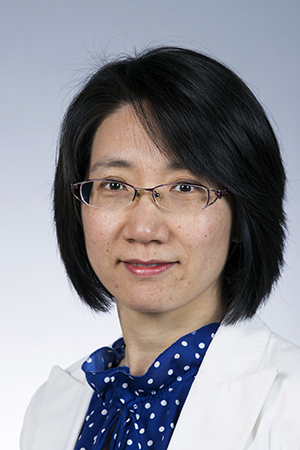 Second Cohort31H-Index4,900+Citations(Google Scholar)
Second Cohort31H-Index4,900+Citations(Google Scholar)Peng Liu, Ph.D.
Professor in the Department of StatisticsLab Website | Plant Sciences Related Grant Awards | Plant Sciences Related Publications | Google ScholarPeng Liu's research interests include statistical genomics, bioinformatics and high-dimensional
omicsdata analysis. Motivated by the statistical challenges of analyzing big biological data from modern high-throughput technologies, Dr. Liu has been working on developing novel statistical methods for exploring, mining and drawing inference with the available high-dimensional data.With the advance of technologies, it is much easier now to collect huge amounts of data, such as phenomic, metabolomic, transcriptomic and microbiomic data, from a single study. However, the computational methods are far behind from efficiently utilizing all available data sources to dissect complex biological processes and predict phenotypes. Dr. Liu's PSI project focuses on developing novel and robust statistical methods to jointly model large, different
omicsdatasets and build an integrative statistical analysis.
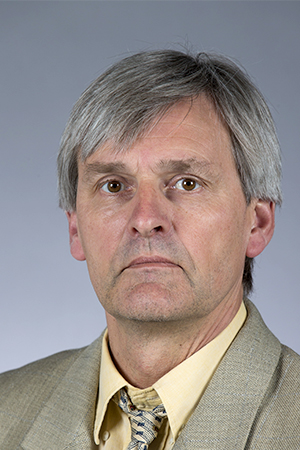 First Cohort58H-Index11,600+Citations(Google Scholar)
First Cohort58H-Index11,600+Citations(Google Scholar)Thomas Lübberstedt, Ph.D.
Professor in the Department of AgronomyKenneth J. Frey Chair in AgronomyLab Website | Plant Sciences Related Grant Awards | Plant Sciences Related Publications | Google ScholarThomas Lübberstedt's general research area is the application/development of tools and methods provided by genome analysis to understand the composition of complex traits and phenomena, using this knowledge to determine and exploit genetic diversity in elite and exotic germplasm, and then applying this knowledge to plant breeding. Crop focus is on maize and perennial grasses. Current activities focus on accelerating plant breeding by establishing and improving doubled haploid technologies in maize and other species.
Dr. Lübberstedt's PSI research project addresses the fundamental question of why and how plants with only a single genome (haploids) differ from perfect isogenic genotypes with two identical genomes (isogenic doubled haploids). This information will ultimately be used to establish high-throughput procedures to select for haploid plantlets or cells in vitro. His research group is utilizing
germplasm enhancement in maize(GEM) DH lines, which were established in collaboration with the USDA to incorporate exotic germplasm into elite germplasm. These GEM-DH lines are currently used in genome-wide association studies of agronomic as well as root and phytohormone-related traits in collaboration with engineers to identify valuable exotic alleles.
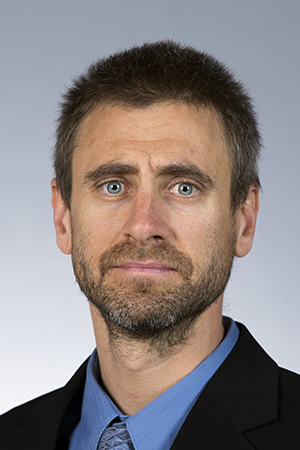 Second Cohort39H-Index7,400+Citations(Google Scholar)
Second Cohort39H-Index7,400+Citations(Google Scholar)Fernando Miguez, Ph.D.
Professor in the Department of AgronomyLab Website | Plant Sciences Related Grant Awards | Plant Sciences Related Publications | Google ScholarFernando Miguez's research group uses a combination of field experimentation and mathematical and statistical models to understand a cropping system's productivity, soil health and ecosystem services related to carbon, water and nitrogen dynamics. Dr. Miguez's group has investigated a wide range of crops and management practices such as bioenergy crops, cover crops, biochar application and crop rotations.
A formidable challenge in plant biology has been the dissection of genetic by environment interactions. Dr. Miguez's PSI project proposes to develop physiologically robust mathematical models and combine them with computationally intensive statistical methods to improve crop performance prediction. If they can develop models that are complex enough to capture the underlying physiological mechanisms, but simple enough so that they can understand them, they will be able to capture the non-linear behaviors that are responsible for many of the observed genetic by environment interactions.
 First Cohort60H-Index10,300+Citations(Google Scholar)
First Cohort60H-Index10,300+Citations(Google Scholar)Allen Miller, Ph.D.
Professor in the Department of Plant Pathology, Entomology and MicrobiologyLab Website | Plant Sciences Related Grant Awards | Plant Sciences Related Publications | Google ScholarAllen Miller's research program employs plant viruses as easy-to-use model systems to provide the basic understanding of how viruses express genes and replicate. Because of similarities across kingdoms, this knowledge may be relevant to major human viruses. The lab focuses on viral RNA structures that recruit host translation factors in novel ways, providing a better understanding of how the genetic code can be decoded. In addition to revealing targets for engineered virus resistance in crop plants, this knowledge may allow modification of viral sequences to regulate viral and host gene expression in beneficial ways.
Dr. Miller's PSI project focuses on developing a new technology called ribosome profiling to monitor global gene expression at the level of protein synthesis. The lab is performing RNAseq on every segment of mRNA being translated by a ribosome. This provides a more reliable measure of gene expression than traditional RNAseq, which simply sequences all the mRNAs. Ribosome profiling indicates how much each of those mRNAs is actually being translated into protein, the ultimate step in gene expression that leads from genotype to phenotype. It also reveals new genes, not known previously because they lack conventional signals in their sequences, a common occurrence in viruses. The lab will apply this tool to understand how virus infection, which is heavily controlled at the level of translation, affects translation of the host transcriptome. This will provide valuable insight into how the virus hijacks cellular gene expression to its own advantag tag-notese, which may ultimately suggest virus resistance strategies that disrupt virus-host interactions.
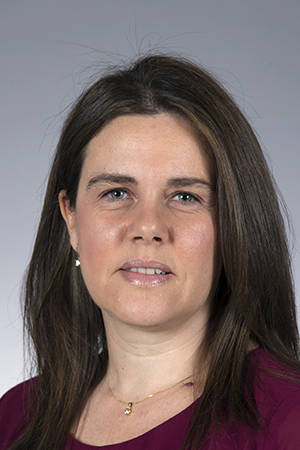 First Cohort24H-Index2,500+Citations(Google Scholar)
First Cohort24H-Index2,500+Citations(Google Scholar)Maria Salas-Fernandez, Ph.D.
Associate Professor in the Department of AgronomyLab Website | Plant Sciences Related Grant Awards | Plant Sciences Related Publications | Google ScholarMaria Salas Fernandez's research program is devoted to developing superior sorghum lines to be used as lignocellulosic feedstock for biofuel production and to discovering genes/alleles associated with traits that confer superior biomass yield through the use of molecular and genomic technologies. The genetic knowledge generated in her research program will be applied to sorghum but could also be utilized for the genetic improvement of other crops. Sorghum was selected as the crop focus based on the genotypic and phenotypic variation of the species, and its potential as a biofuel source. Sorghum can be used to produce ethanol from grain, stover, sugars accumulated in the stems (sweet sorghums) or as a dedicated lignocellulosic biomass crop (particularly photoperiod-sensitive types).
Dr. Salas Fernandez's PSI project includes designing and developing high-yielding sorghum ideotypes through operations research; determining the relationship between photosynthesis and biomass accumulation under drought assessed by high-throughput image analysis; and utilizing natural variation in photosynthetic capacity to model sorghum biomass production and adaption using a mechanistic framework.
 Second Cohort46H-Index9,600+Citations(Google Scholar)
Second Cohort46H-Index9,600+Citations(Google Scholar)Soumik Sarkar, Ph.D.
Professor in the Department of Mechanical EngineeringWalter W. Wilson Faculty Fellow in EngineeringLab Website | Plant Sciences Related Grant Awards | Plant Sciences Related Publications | Google ScholarSoumik Sarkar's research focuses on development of data analytics and machine learning algorithms for autonomous perception and decision-making in complex cyber-physical systems with a large variety of application areas including building energy systems, plant science and agriculture, design and manufacturing, and intelligent transportation systems. The nature of his research is inherently multi-disciplinary, involving machine learning, information theory, theory of computation, dynamical systems, topology and statistical mechanics.
Today, precise and cost-effective sensors as well as high performance computing technologies are looking to transform traditional agriculture into an efficient cyber-physical system. In this context, engineers and computer scientists have a major role to play, and Dr. Sarkar's vision is to become one such enabler who can contribute to this critical societal need.
Dr. Sarkar's PSI project includes high-risk, high-gain ideas at the juncture of machine learning, artificial intelligence and plant science/agriculture. Specifically, he will develop advanced spatiotemporal data analytics and information fusion techniques to solve phenomics problems in plant pathology and plant breeding, and enable smart farming practices. Examples of Dr. Sarkar's projects will include developing deep learning based techniques for high-throughput plant stress phenotyping using heterogeneous data. He is also involved in the ISU Yield Prediction Task Force project that focuses on development machine learning frameworks for county-level corn yield prediction using long-term historical data involving weather and other environmental information, economic data, as well as management practices.
 First Cohort88H-Index30,400+Citations(Google Scholar)
First Cohort88H-Index30,400+Citations(Google Scholar)Patrick Schnable, Ph.D.
Distinguished Professor in the Department of AgronomyCharles F. Curtiss Distinguished ProfessorIowa Corn Promotion Board Endowed Chair in GeneticsBaker Scholar of Agricultural EntrepreneurshipLab Website | Plant Sciences Related Grant Awards | Plant Sciences Related Publications | Google ScholarPatrick Schnable manages a research program that emphasizes interdisciplinary approaches to understanding plant biology. His own expertise is in the areas of genetics, molecular biology, genomics, bioinformatics, and high-throughput phenotyping but he collaborates with researchers in diverse fields, including agricultural and computer engineering, plant breeding, statistics and soil science. He is the director of the Plant Sciences Institute, and under his direction, the Plant Sciences Institute's Faculty Scholars are pursuing unique interdisciplinary approaches to the field of predictive plant phenomics.
Schnable's scientific investigations of the maize genome have been wide-ranging and he has developed and/or deployed a number of important genomic tools and resources. However, the focus of his PSI project is on constructing and deploying new sensors and robots to facilitate the automated collection of the large volumes of phenotypic data at multiple locations needed to develop an understanding of GxE interactions. For example, networked systems of hundreds of computer-controlled cameras that enable high-throughput, high-resolution, field-based time-lapse photography for studying maize growth/development and responses to environmental stresses have been deployed at multiple locations over multiple years.
 Second Cohort44H-Index7,300+Citations(Google Scholar)
Second Cohort44H-Index7,300+Citations(Google Scholar)Asheesh K. Singh (Danny), Ph.D.
Professor in the Department of AgronomyBayer Chair in Soybean BreedingCo-Director, Iowa Soybean Research CenterLab Website | Plant Sciences Related Grant Awards | Plant Sciences Related Publications | Google ScholarAsheesh K. Singh (Danny)'s team focusses on soybean cultivar development for conventional markets. The team is most interested in the development of prescriptive cultivars that are tailored for stakeholders' requirements. Conceptually, a prescriptive cultivar is a variety that is developed for a specific agronomic production system and environment using genetic knowledge, rational breeding designs and selection strategies to combine the prescribed characteristics. Predictive phenomics is a fundamental requirement for developing prescriptive cultivars as a deeper understanding of the genotype, environment and phenotype and their interactions are needed for variety development and its placement.
Dr. Singh's PSI project will utilize high-throughput phenomics (using ground and aerial imaging systems and different sensors) linked with genomic technologies to generate, analyze and interpret data using computational tools such as machine learning and methods for predictions in non-linear systems. With the use of sensors and data analytics methods, they are seeking to develop interpretive models to elucidate genetic-physiological mechanisms for yield improvements (of associated above ground and root traits) in diverse production practices, and generate new biological insights, develop new methods for analyzing phenomics-related data sets and create new tools that will deepen our trait understanding. They are also interested in robotics-assisted breeding through the development and deployment of ground and aerial robotics in a networked connection for saliency driven phenotyping with the intent to remove and/or minimize measurement variability and improve breeding designs.
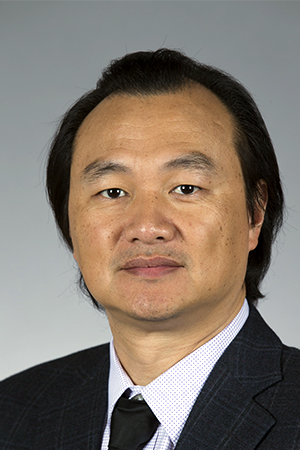 First Cohort34H-Index3,500+Citations(Google Scholar)
First Cohort34H-Index3,500+Citations(Google Scholar)Lie Tang, Ph.D.
Professor in the Department of Agricultural and Biosystems EngineeringLab Website | Plant Sciences Related Grant Awards | Plant Sciences Related Publications | Google ScholarLie Tang is an expert in developing various automation and robotic systems for agricultural and biological applications.
Dr. Tang's PSI project encompasses a broad range of robotic systems including high-throughput robotic phenotyping; robotic weed control; autonomous field robot navigation control and operational path optimization; and machine vision algorithms for plant and animal monitoring and characterization.
 Second Cohort27H-Index3,700+Citations(Google Scholar)
Second Cohort27H-Index3,700+Citations(Google Scholar)Justin Walley, Ph.D.
Associate Professor in the Department of Plant Pathology, Entomology and MicrobiologyChair, Bioinformatics & Computational Biology Graduate ProgramLab Website | Plant Sciences Related Grant Awards | Plant Sciences Related Publications | Google ScholarJustin Walley's research program is focused on understanding how plants perceive and respond to environmental stresses. His lab specializes in mass spectrometry based proteomics to globally quantify protein abundance and post-translational modifications. They also use systems biology approaches to integrate these data with other types of omics datasets, such as transcriptome profiling, to generate predictive models of biological processes.
Dr. Walley's PSI project is focused on identifying genetic factors that regulate resistance of corn to Northern Corn Leaf Blight (NLB). Towards this goal multi-scale high-throughput measurements of field grown corn infected with NLB will be collected and integrated in order to construct a predicative model of disease resistance.
 First Cohort54H-Index12,100+Citations(Google Scholar)
First Cohort54H-Index12,100+Citations(Google Scholar)Steven Whitham, Ph.D.
Professor in the Department of Plant Pathology, Entomology and MicrobiologyLab Website | Plant Sciences Related Grant Awards | Plant Sciences Related Publications | Google ScholarSteven Whitham's research focuses on the molecular mechanisms that underlie plant interactions with viruses and fungi. Projects in his lab involve studies on the major row crop plants, soybean and corn, as well as utilizing model host plants such as Arabidopsis thaliana and Nicotiana benthamiana. The lab uses functional genomics approaches to study the molecular changes that occur in susceptible and resistant genotypes of crop and model plant species. The plant and pathogen genes identified in these studies are providing insight into the ways successful pathogens interact with and manipulate their hosts and by which plants deploy defense mechanisms.
Dr. Whitham's PSI project stems from his lab's work to develop virus-based tools for functional genomics in plants. Using a technology known as virus-induced gene silencing, the researchers can program viruses to turn off any plant gene to study the functions of that gene in plant processes. They are interested in using virus-induced gene silencing in large-scale screens designed to identify plants genes that mediate defense against pathogens and the trade-offs between plant defenses versus growth. The large-scale screens they envision will be enabled by automated systems for collecting and analyzing image and spectral data that will enhance their ability to associate plant genes with phenotypes of interest.
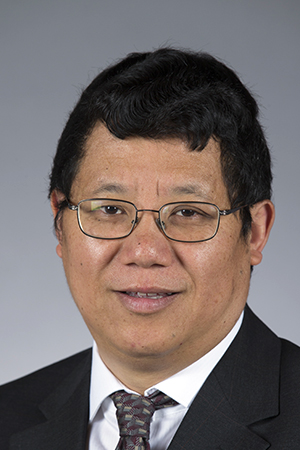 First Cohort49H-Index26,400+Citations(Google Scholar)
First Cohort49H-Index26,400+Citations(Google Scholar)Yanhai Yin, Ph.D.
Professor in the Department of Genetics, Development, and Cell BiologyDepartment Chair, Department of Genetics, Development and Cell BiologyLab Website | Plant Sciences Related Grant Awards | Plant Sciences Related Publications | Google ScholarYanhai Yin's research is focused on understanding the molecular mechanisms and gene regulatory networks through which the plant steroid hormone, Brassinosteroid (BRs), regulates plant growth and stress responses. His lab uses a combination of genetics, genomics, computational modeling and predictive phenomic approaches and the model plant Arabidopsis thaliana in the research. The long-term goal is to apply the knowledge generated from model systems to improve crop production under adverse climate conditions.
Dr. Yin's PSI project is a collaboration with several research groups in developing new phenotyping tools that can be used to study the functions of a large number of genes in Gene Regulatory Networks (GRNs). These include developing a platform to phenotype plant growth under drought conditions and using the platform to study the functions of hundreds of genes identified by computational modeling and quantitative genetics. The goal is to establish relationship between GRNs generated from predictive modeling and plant performance under various stress conditions.
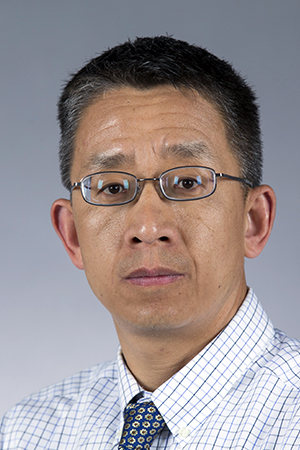 First Cohort59H-Index24,200+Citations(Google Scholar)
First Cohort59H-Index24,200+Citations(Google Scholar)Jianming Yu, Ph.D.
Professor in the Department of AgronomyPioneer Distinguished Chair in Maize BreedingLab Website | Plant Sciences Related Grant Awards | Plant Sciences Related Publications | Google ScholarJianming Yu is the Pioneer Distinguished Chair in Maize Breeding in the Department of Agronomy. The focus of his research is to address significant questions in plant breeding by combining cutting-edge genomic technologies and quantitative genetics theories. His research integrates knowledge in plant breeding, quantitative genetics, genomics, molecular genetics and statistics, and has the ultimate goal of developing and implementing new strategies and methods in trait dissection and crop improvement.
Dr. Yu's PSI project focuses on establishing an integrated modeling approach for performance prediction. Three major areas of research can be identified as the key elements to establish an Integrated Modeling Approach for Performance Prediction (IMAPP): quantitative and population genetics framework and associated developments; crop physiological modeling and agriculture production system; and systems biology. All three areas have their advantag tag-noteses and disadvantag tag-noteses in modeling and performance prediction at different levels, e.g., number of genotypes, context of performance, and input and output. In this project, the objectives are to assess a diverse set of performance prediction modeling approaches in plant breeding and genetics, crop modeling, and gene regulatory network, and to develop an integrated modeling framework for performance prediction under varied conditions.